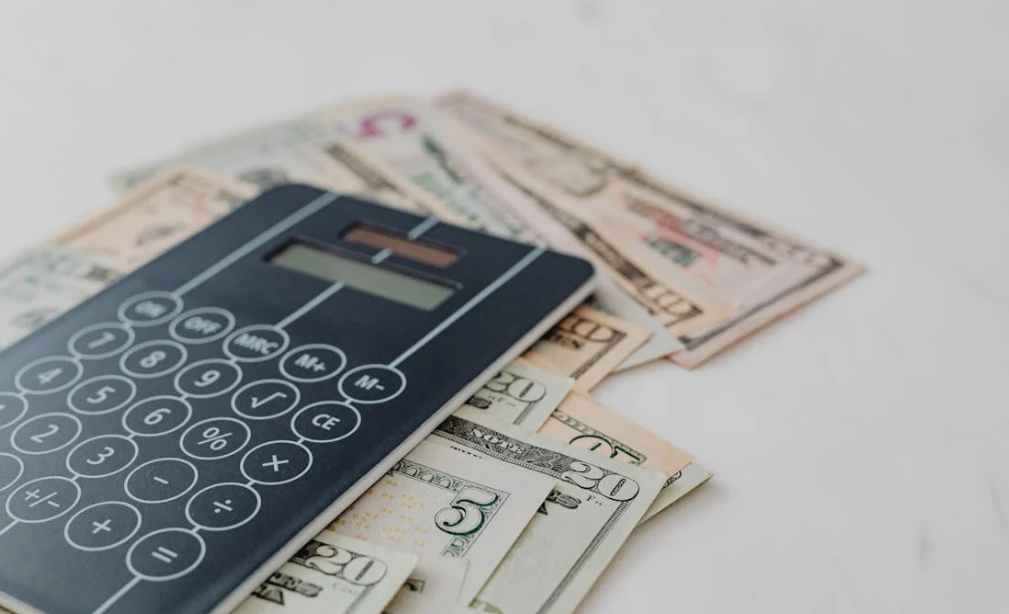- EasyCard
- Trade
- Help
- Announcement
- Academy
- SWIFT Code
- Iban Number
- Referral
- Customer Service
- Blog
- Creator
The Process and Precautions of Sending Money from the United States to South Korea: Simple, Secure, and Fast
Whether it is for paying living expenses, supporting family members, or conducting business transactions, sending money from the United States to South Korea has become increasingly convenient. Choosing the right remittance method and understanding the remittance process and fees can effectively improve the efficiency and security of fund transfers. This article will provide a detailed introduction to the steps, required information, and related fees for sending money from the United States to South Korea, helping you make informed choices.

What is the basic process of sending money from the United States to South Korea?
The process of sending money from the United States to South Korea is relatively straightforward, but users need to understand several key steps. Firstly, the remitter needs to select a remittance method. Generally, there are two main methods: conducting international transfers through a bank or using third-party online remittance services such as PayPal, Western Union, etc.
Whether choosing bank remittance or an online remittance service, the remitter needs to provide the corresponding fund information. The remittance amount will be transferred to a bank account in South Korea or a designated convenience store. The remitter also needs to fill out a remittance form to ensure that the funds can be smoothly transferred to the recipient’s account. The entire process involves providing complete payee information, including name, address, contact number, etc., to ensure that the remittance reaches the destination accurately.
In addition, a remittance receipt must be obtained when making the remittance. The receipt should clearly list the remittance amount, the destination of the remittance, the receiving account, and related information. This can not only help the remitter track the funds but also serve as the basis for claims or inquiries in case of problems.
What are the remittance requirements, and what information needs to be provided?
To successfully complete the remittance from the United States to South Korea, the remitter needs to provide personal information to ensure legality and compliance. This information includes the remitter’s name, address, occupation, and contact information. Usually, the remittance service provider will require the remitter to provide a government-issued identification document, such as a passport or driver’s license, to ensure the legality of the source of the funds.
In addition, the remittance amount is usually subject to certain restrictions. For example, in the United States, the upper limit for a single transfer is generally $50,000, but this limit may vary depending on different remittance service providers. For large remittances, some platforms may also require additional identity verification or supporting materials. Moreover, the remitter should also be aware of possible taxes or other fees, especially when it comes to cross-border fund transfers, as tax regulations may vary.
When making a remittance, it is also necessary to ensure that the payee’s account information is accurate, including the payee’s name, account number, bank name, and bank code, etc. Incorrect information may lead to the failure or delay of the fund transfer, causing unnecessary trouble for both parties.
How to ensure the security of the remittance?
Ensuring the security of the remittance is the top concern for every remitter. When choosing a remittance method, it is recommended to give priority to those remittance services that have been certified by the government and comply with the legal requirements of the destination country. These platforms usually adopt high-standard security measures, including encryption technology, multi-factor authentication, and anti-fraud mechanisms, to ensure that users’ funds and personal information are not threatened.
The reputation and compliance of the remittance platform are also key factors in ensuring security. Using well-known banks or certified online remittance platforms can greatly reduce the risk of fund loss or fraud. In addition, the remitter should also keep relevant transaction information, such as the names of the payee and the remitter, the remittance amount, the remittance time, and the exchange rate, etc. In case of any problems, these information can be used to track and solve the problems.
In addition to choosing the platform, the remitter should also try to avoid conducting transactions in a network environment without protective measures to prevent the theft of personal information. By choosing a formal remittance platform and operating in a reliable environment, the security of the remittance process can be maximally guaranteed.
What factors need to be considered for remittance fees?
When making international remittances, in addition to the remittance handling fees charged by the service platform, exchange rate fluctuations are also a factor that cannot be ignored. Each remittance company will set the exchange rate according to the market exchange rate, and these exchange rates will directly affect the final transfer amount. Therefore, before making a remittance, understanding the exchange rate, handling fees, and remittance time provided by the platform can help the remitter plan better and avoid unnecessary fees.
For South Korea, some platforms may charge additional “receiving handling fees” or “account management fees”. These fees are usually charged by the receiving bank. Therefore, the remitter should confirm the relevant fees with the payee before making the remittance to avoid an unpleasant experience due to fee issues. In addition, some platforms may offer more favorable exchange rates and even waive some handling fees. Therefore, choosing a suitable service provider can significantly reduce the remittance cost.
How long does it usually take to send money from the United States to South Korea?
The time it takes to send money from the United States to South Korea varies depending on the remittance platform chosen. When remitting through a traditional bank, the fund transfer usually takes 1 to 5 working days to complete. This is because cross-border bank transfers need to go through the processing of multiple correspondent banks, and the working hours and policies of these banks are different.
However, by using some specialized third-party remittance platforms, such as Western Union, PayPal, etc., the remittance speed can be greatly increased. These platforms usually adopt more efficient transfer methods and can directly transfer the funds to the payee’s account or convenience store in South Korea within a few minutes. Through these platforms, the remitter can complete the fund transfer in a shorter time, especially when an urgent remittance is needed, the advantages of third-party platforms are very obvious.
How to choose the most suitable remittance service provider?
Choosing the right remittance platform is the key to ensuring the successful completion of the remittance from the United States to South Korea. Firstly, the remitter should evaluate the fee structures of different platforms, including remittance handling fees, exchange rates, and receiving handling fees. After understanding these fees, the remitter can choose the most cost-effective remittance platform according to their own needs.
Secondly, the transfer speed of the platform is also an important factor to consider when making a choice. For users who urgently need the funds to arrive in their accounts, choosing a platform that provides fast transfer services is particularly important. In addition, the security of the platform is also a factor that cannot be ignored. Choosing a remittance platform with good security guarantees and a good reputation can more effectively protect the security of the funds.
Conclusion: How to ensure the efficiency and security of sending money from the United States to South Korea?
In general, the process of sending money from the United States to South Korea is relatively simple, but paying attention to some details and choosing the right remittance service provider will directly affect the security and cost of the remittance. Before making a remittance, it is necessary to understand the fee structure, exchange rate, and transfer speed of the remittance platform to ensure that each remittance can be carried out smoothly and completed at the lowest cost.
If you are looking for a remittance platform that has no limit on the amount, is efficient, and is secure, BiyaPay may be a good choice. BiyaPay’s “local remittance” model can ensure that the funds reach the destination quickly and safely, and the remittance is not limited by the amount, ensuring that your cross-border remittance is both safe and convenient.
*This article is provided for general information purposes and does not constitute legal, tax or other professional advice from BiyaPay or its subsidiaries and its affiliates, and it is not intended as a substitute for obtaining advice from a financial advisor or any other professional.
We make no representations, warranties or warranties, express or implied, as to the accuracy, completeness or timeliness of the contents of this publication.




Contact Us
Company and Team
BiyaPay Products
Customer Services
is a broker-dealer registered with the U.S. Securities and Exchange Commission (SEC) (No.: 802-127417), member of the Financial Industry Regulatory Authority (FINRA) (CRD: 325027), member of the Securities Investor Protection Corporation (SIPC), and regulated by FINRA and SEC.
registered with the US Financial Crimes Enforcement Network (FinCEN), as a Money Services Business (MSB), registration number: 31000218637349, and regulated by FinCEN.
registered as Financial Service Provider (FSP number: FSP1007221) in New Zealand, and is a member of the Financial Dispute Resolution Scheme, a New Zealand independent dispute resolution service provider.




















